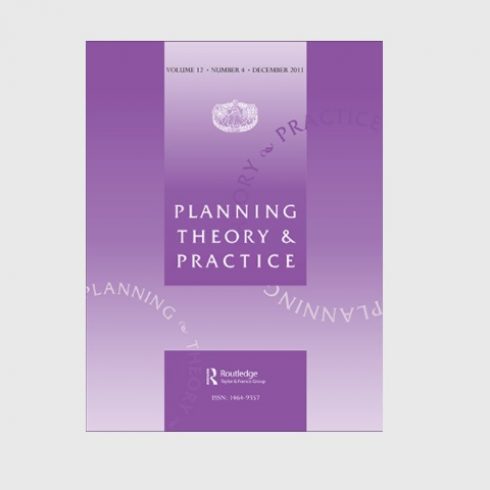Rethinking Informality
Politics, Crisis, and the City
Colin McFarlane
Planning Theory and Practice, 2012, Issue 1 2012

Abstract
If informality has been conventionally understood as a territorial formation or as a labour categorisation, this paper offers an alternative conceptualisation that conceives informality and formality as forms of practice. The paper examines how different relations of informal and formal practice enable urban planning, development and politics, and explores the changing relationship between informality and formality over time. To illustrate the political potential of conceiving informality and formality as practices, it highlights the fall-out from a particular urban crisis: the 2005 Mumbai monsoon floods. In the final section, the paper offers three conceptual frames for charting the changing relations of informal and formal practices: speculation, composition, and bricolage.
 Share
Share






Commentary
The latest commentary on the use of antimicrobials in society.
Sustainable aquaculture in Bangladesh
Rather than asking how antibiotics enable livelihoods in situations of increasing precarity, our research asks whether it is possible to...
‘Notes from the Field’: Wakiso District, Kampala, Uganda
Antibiotics, poultry, and livelihoods: Conjoined Worlds in Medium-Scale Urban Livestock Keeping.
Fresh Perspectives
Antimicrobials are central to many contemporary forms of care and production for humans, animals, plants and even objects – clothing,...